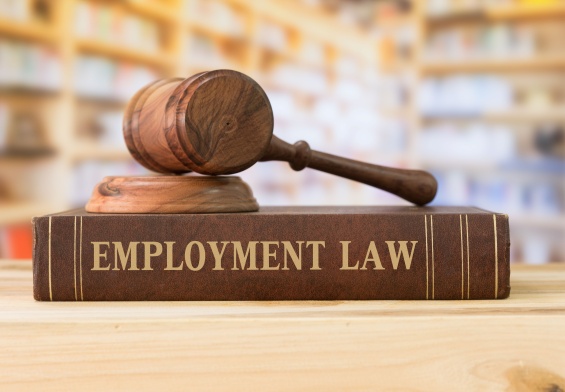A Legal Guide for Families in New Jersey
Ensuring the safety and well-being of an elderly family member is a top priority for families who hire home caregivers in New Jersey. Unfortunately, instances of caregiver negligence can still occur, leaving families in a position where they must step in to protect their loved one. Recognizing the signs of elder neglect and understanding the steps to address potential caregiver negligence are essential to ensuring a safe, respectful, and supportive environment for seniors. If a situation involving potential negligence arises, it’s also helpful to understand the legal options and resources available through elder neglect lawyers and personal injury law attorneys.
Recognizing the Signs of Elder Neglect and Abuse
Neglect by a New Jersey in-home caregiver can be subtle or apparent, but it’s essential to recognize both the physical and emotional signs. When a caregiver fails to meet the essential needs of the senior, whether it’s not administering medications on time, failing to assist with daily activities, or neglecting hygiene, the consequences can be severe.
Some signs of elder neglect that families in New Jersey should watch for include:
- Unexplained Injuries or Bruises: Falls or accidents due to lack of assistance with mobility can lead to bruises, cuts, or fractures.
- Poor Personal Hygiene: Neglecting basic hygiene needs, such as bathing, dental care, and dressing, may indicate caregiver inattention.
- Weight Loss or Dehydration: Neglecting proper nutrition and hydration is one of the more apparent forms of caregiver negligence.
- Changes in Mood or Behavior: Signs of emotional neglect may include depression, anxiety, or withdrawal, often due to isolation or lack of interaction with the caregiver.
If any of these signs are present, it’s essential to assess the situation carefully and ensure that the caregiver’s conduct aligns with what is expected in their role. Legal assistance from an elder neglect lawyer can help guide families through situations where negligence or abuse is suspected.
Steps to Address Caregiver Negligence
Once signs of possible neglect are noticed, families can take the following actions to protect their loved ones:
- Document Everything
Maintaining a detailed record of any signs of neglect or mistreatment can be crucial if legal action is necessary. This documentation may include dates, descriptions of injuries, medical records, and photos, as well as any specific observations about the caregiver’s conduct. - Speak Directly to the Caregiver or Agency
Sometimes, discussing concerns with the caregiver can clarify misunderstandings or resolve minor issues. If the caregiver works for an agency, contacting the agency’s management to raise concerns may prompt an internal investigation or changes in caregiver assignment. However, if you don’t see improvement, reaching out to an elder neglect law firm might be necessary. - Consult with an Elder Abuse Lawyer
Families suspecting caregiver negligence may need to consult an elder abuse attorney to understand their legal rights. Elder abuse attorneys can help families determine if they have grounds to pursue legal action based on New Jersey elder neglect laws. They may also assist with pursuing compensation for damages, especially if neglect has led to severe injury or deteriorated health. - File a Report with New Jersey Authorities
In cases of serious elder neglect or abuse, families can report the issue to local authorities. Knowing how to report elder abuse in New Jersey is essential in these situations. Reporting to the New Jersey Adult Protective Services (APS) can initiate an investigation, potentially preventing further harm to the senior. Additionally, it demonstrates a proactive approach to holding caregivers accountable for their actions. - Seek Compensation for Damages
If neglect results in physical or financial damage, an elder care personal injury attorney “near me” can advise on seeking compensation. Many personal injury attorneys specialize in elder abuse cases and can assist in securing funds for medical expenses, pain and suffering, or financial recovery in cases of financial elder abuse.
Legal Support in Cases of Elder Neglect
In New Jersey, several laws protect seniors against neglect and abuse. However, navigating these legal protections can be complex without experienced legal guidance. Personal injury law attorneys often have experience dealing with cases related to elder abuse and can help families hold negligent caregivers accountable.
Working with the best personal injury attorneys and those specializing in elder neglect cases ensures families receive expert legal advice and representation. In cases where seniors have suffered due to neglect, an elder neglect attorney “near me” can review the facts, assess the severity of the case, and offer insight into the best course of action.
Some families may worry about the costs associated with hiring legal assistance, but many personal injury law attorneys “near me” offer free consultations and work on a contingency fee basis, meaning fees are only required if the case is successful. This flexibility allows families to seek justice without significant financial burden, enabling them to pursue their claim confidently.
Types of Elder Abuse Beyond Neglect
Elder neglect is just one form of abuse; other types of elder abuse can also have devastating impacts on seniors. Families should be vigilant about various forms of abuse, including:
- Physical Abuse: Physical force causing injury or harm, such as hitting, pushing, or improperly restraining the senior.
- Emotional Abuse: Verbal assaults, intimidation, or isolation can severely impact a senior’s mental health.
- Financial Abuse: Often, caregivers have access to personal financial information, making financial elder abuse a risk. Families should monitor bank accounts and look for any unusual financial activity.
Understanding the types of elder abuse can help families recognize any threats to their loved ones, even beyond caregiver neglect.
Resources and Support for Families in New Jersey
Navigating elder care can be overwhelming, especially when challenges with New Jersey in-home caregivers arise. For families in New Jersey, resources such as New Jersey Adult Protective Services and home health care in New Jersey offer support. These services provide guidance and assistance in investigating claims of abuse or neglect, offering families peace of mind that their loved ones are in safe hands.
Additionally, families can consult the best personal injury lawyers in New Jersey to assess whether legal intervention is appropriate. These professionals can explain the New Jersey elder abuse laws in-depth, providing families with the tools they need to protect their loved ones effectively.
Conclusion: Advocate for Quality Elder Care
Every family deserves the assurance that their elderly loved ones are receiving safe and compassionate care from an experienced New Jersey at-home caregiver. By recognizing signs of elder neglect, taking steps to address concerns, and understanding the available legal options, families can advocate effectively for their loved ones’ rights. If caregiver negligence becomes a persistent issue, reaching out to an elder abuse attorney near me or elder neglect lawyer can make a significant difference in ensuring accountability and quality care.
When it comes to elder care, a proactive and informed approach is the best way to protect loved ones. And in New Jersey, a strong legal framework and resources are available to help families navigate these challenging situations, ensuring seniors enjoy their golden years with dignity and respect.
Resources:
- In-Home Senior Care Legal Rights and Responsibilities – 1+1 Cares
- Legal issues in home care – Caring Journal
- Elder Abuse and Elder Financial Exploitation Statutes – S. Department of Justice
- Elder Abuse in Residential Long-Term Care Settings – Elder Mistreatment: Abuse, Neglect, and Exploitation in an Aging America




